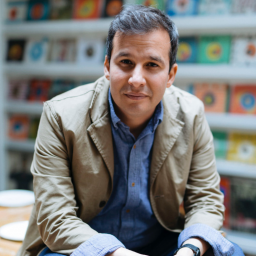Meaningful Business (MB:) Can you share some details about the Focus areas you invest in, and why you have chosen these themes?
Hans van Houwelingen (HH): Urban Impact Ventures is an impact venture capital firm on a mission to improve urban quality of life in Europe, focusing on sustainable transformation of cities. Urban areas are both the anchor points of our societal transformation, as well as underserved in terms of access to finance and innovation.
This applies to most urban areas in the world, both in emerging and developing countries, around large cities as well as smaller cities. We believe that impact venture capital has a material role to play in supporting entrepreneurs with urban transformational ambitions.
In our vision a sustainable city is human-centric and inclusive, supporting its growth without increasing emissions or waste, and balancing population density and green infrastructure. A sustainable city also levers on technology to support the collaboration among citizens, to tailor and integrate various transportation modes, as well as to improve the general wellbeing of people.
Our core investment themes are decarbonisation and circularity in the urban environment. Besides, we look at investment opportunities that foster inclusiveness, collaboration among citizens and general wellbeing. Combined, these investment themes touch on all elements of our vision for a sustainable city and cover a variety of industry verticals resulting in an attractive and deep pool of impact venture capital opportunities.

Hans van Houwelingen, Founder and CEO of Urban Impact Ventures
MB: How do you see the investment industry evolving over the next two years, in terms of financing nature-based solutions?
(HH): Both on a national as well as on a supra-national level, we see an evolving consensus that current production and consumption models are not sustainable, especially when combined with an ever- increasing global population that increasingly concentrates in urban areas, imposing longer term existential risks to humanity at large.
Individual nations, as well as member blocs like the European Union, are preparing unprecedented packages to support the adoption of nature-based solutions. They aspire to attract the wider investment community to become a catalyst for sustainable transformation, whether it’s about protecting biodiversity or preserving the balance between nature and the built environment in cities, food security, water management, etc.
Seeing the public funding gap being clearly addressed, we think over the next two years it is of utmost importance that not only the impact investment industry will further mature and strengthen, but also the more mainstream private market investors join. There is ample evidence that investing in nature-based opportunities could deliver attractive financial returns.
Where global investors already embrace ESG integration as the new standard practice, incorporating ESG related factors in risk assessment and consequent investment decisions, in the coming years we expect standard practices to further shift towards intended sustainable transformation of companies and their business models. At the forefront of developments we see impact investors attracting record levels of fresh capital to be deployed with a net-positive impact on our planet and society alongside market return expectations.
MB: What do you believe needs to change or improve within the investing ecosystem, to make capital more accessible for climate entrepreneurs?
(HH): The investing ecosystem has a tremendous role to play in our shared success (or failure) to address environmental and social challenges. This requires increased investment focus on science-based sustainable transformation within almost every sector of the economy, including sectors that are currently big polluters in areas like materials and infrastructure.
ESG integration is the bare minimum to ensure that the cost of capital for the worst performers will increase and with that foster transformational innovation in the industry. It does not ensure sustainable production and consumption patterns, nor does it ensure alignment with the UN Global Goals or the various net-zero ambitions pledged by organisations. For that we need more investors to embrace sustainable and impact investing as a core objective, which allows for greater accessibility to capital for sustainability driven entrepreneurs.
MB: What advice would you give to environment-focused entrepreneurs, looking to raise capital?
(HH): Don’t forget your shareholders – environmental or socially focused entrepreneurs that are preparing for a capital raise should try to ensure they are VC eligible from an economic perspective as well to broaden their funding opportunities at various stages.
Focus on the core and do your homework – Sustainability claims and the underlying assumptions are preferably verifiable through external research or data gathered. Sustainability metrics and ambitions should be measured, material and relevant, which means they relate to the core product or service.
Don’t be afraid to tackle the hard problems – Our existential crisis cannot be solely mitigated through marginal improvements of existing solutions and business models, or through software applications only. As an impact investor we are committed to support companies with different innovation horizons, both in hardware as well as software solutions.
Build a strong network – No matter whether the company sells directly to government, local businesses, or local consumers, we amongst others evaluate impact and growth potential based on a company’s level of engagement with urban stakeholders. We preferably invest in entrepreneurs that are well-embedded into the urban landscape of at least several cities or regions.




















